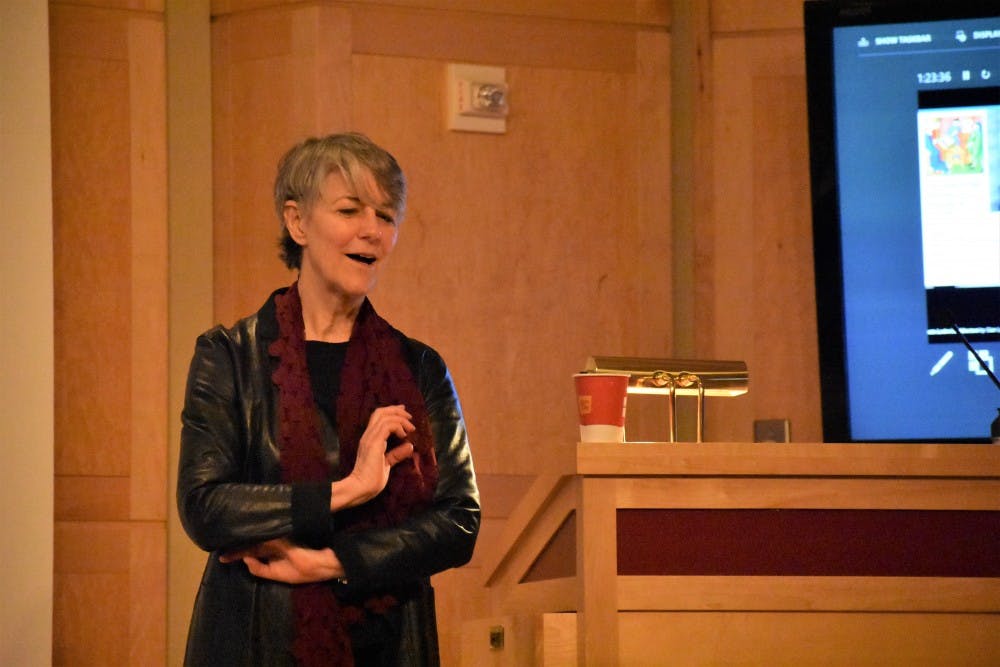Columbia University professor Christia Mercer discusses prisons, philosophy in two-day visit
Christia Mercer says prison inmates are her students and friends, and she believes they all are deserving of a higher education and a chance at a better life.
Mercer, the Gustave M. Berne professor of philosophy at Columbia University, spoke twice Feb. 1-2 in Central Michigan University's Charles V. Park Library Auditorium.
"Crossing Boundaries/ Rethinking Justice, or How the U.S. Prison Industrial Complex Undermines Our Democracy" focused on the flaws of the prison's educational system and the people it impacts.
Mercer believes the reason there aren't many programs geared to funding programs to give prisoners a better education is due to the public opinion of what a prisoner is.
"We think of people who are incarcerated as 'animals' and one of the things I think we really need to reconsider is these kinds of assumptions," Mercer said.
Mercer outlined the flaws of the prison's educational system in addition to the harsh realities of the prison system as a whole. Overcrowding prisons become a breeding ground for things like rape, abuse and excessive solitary confinement, which can leave emotional and mental scars on the inmates for the rest of their lives.
"In a lot of prisons, 10 percent of the people have to be in solitary confinement. That's just a fact," Mercer said.
Mercer added that's why she is part of a prison abolition movement to eliminate cruel punishment and seek for a more humane approach to get the rehabilitation prisoners need.
Mercer said this not only impacts the inmates, but the families. There are many prisoners that have children at home, and sometimes not being able to post bail can mean a child is placed into foster care.
Inmates want good education and treatment for mental illness, Mercer said. In order for them to get help, Mercer encourages people to band together and change the public view of inmates being anything less than human.
As part of a series of lectures, her lecture on Friday focused on history's overlooked female figures of philosophy and introduced a new perspective of philosophy as a whole.
"It's one thing for a woman to write passionately about God and women had begun to do that, and only recently have they began to do that...it's another thing for a woman to write philosophical clarity," Mercer said.
The philosophy of women like Saint Teresa of Avila would be argued over and scrutinized by male philosophers on either side, and over time would label her as a mystic for her works.
After researching more about female philosophers, Mercer became particularly interested in early 17th century philosopher Anne Conway. Being an anchoress, Conway grew up anchoring herself to the church and devoting her days to teaching herself since majority of women didn't have a formal education.
"That was one of the ways for women to avoid getting married, and if they got married, they would have to be submissive to their husband," Mercer said.
Conway had a very different view to philosophy, which dealt with meditating on the suffering that one felt. This idea of meditation was closely similar to the works of Teresa, which both had helped create and develop philosophy's meditated exercises. Both of their works changed Mercer's view of philosophy.
The lectures were sponsored by the College of Humanities and Social and Behavioral Sciences and the Department of Philosophy and Religion as part of Critical Engagements: Questions That Matter.




